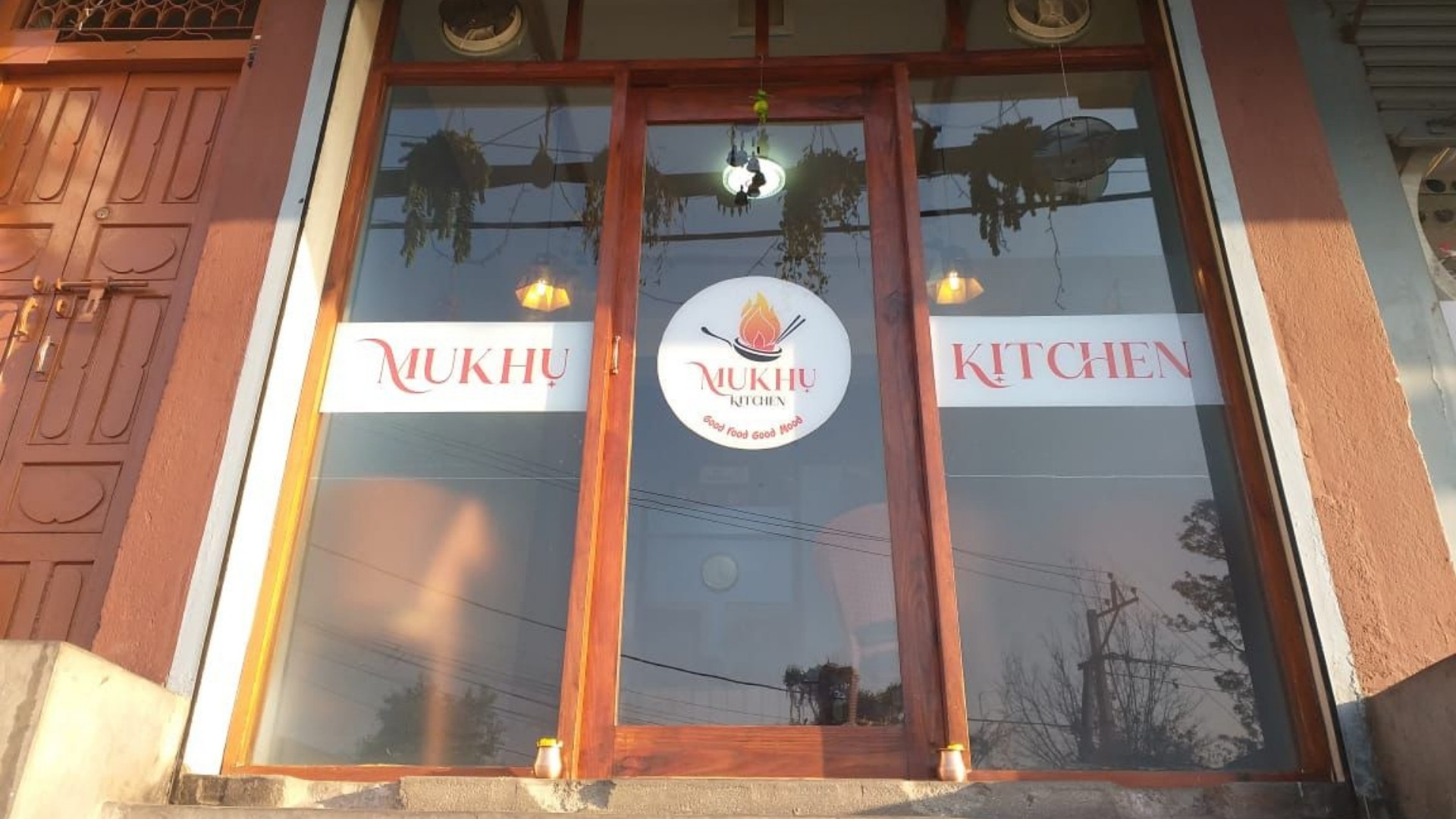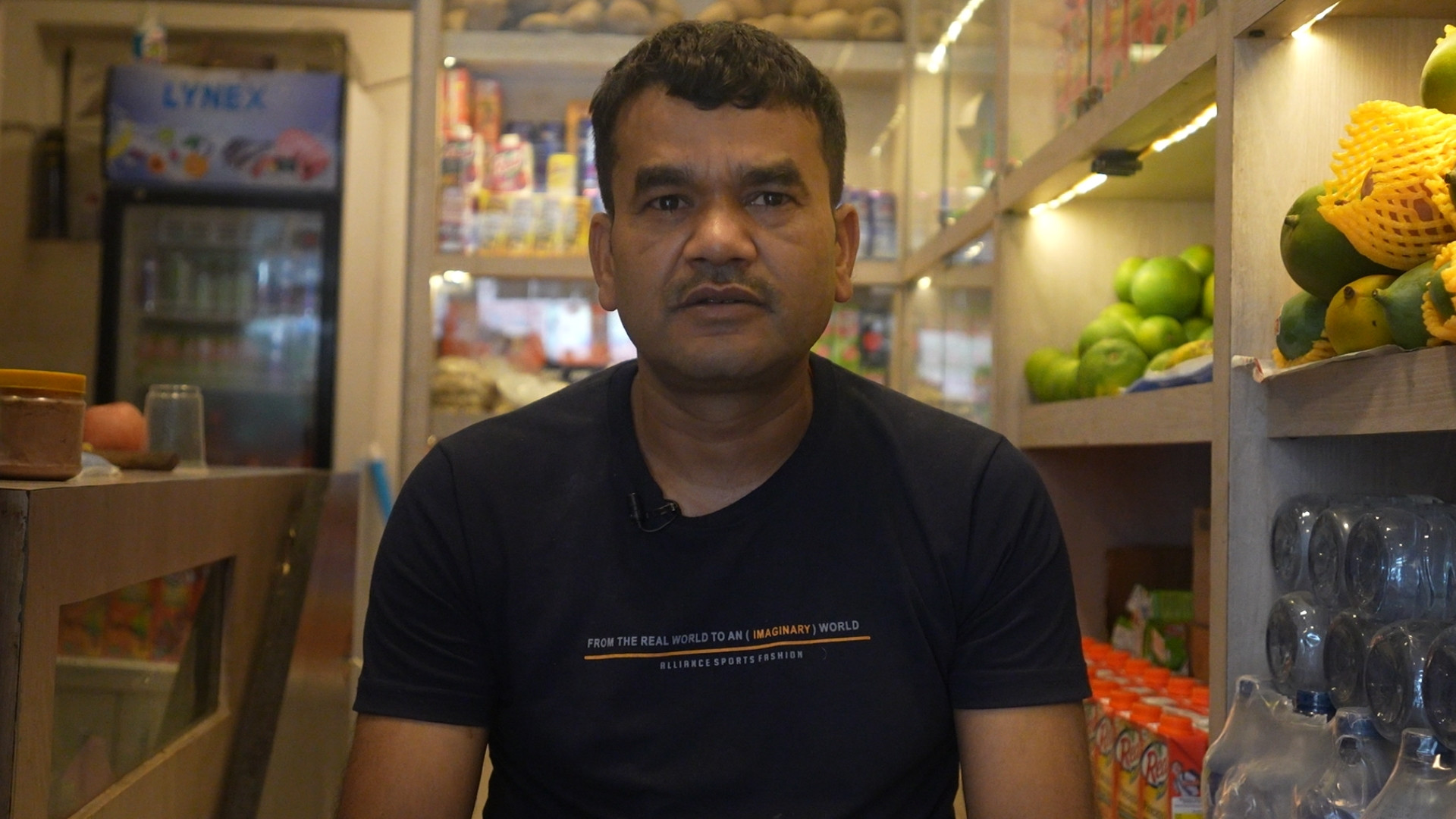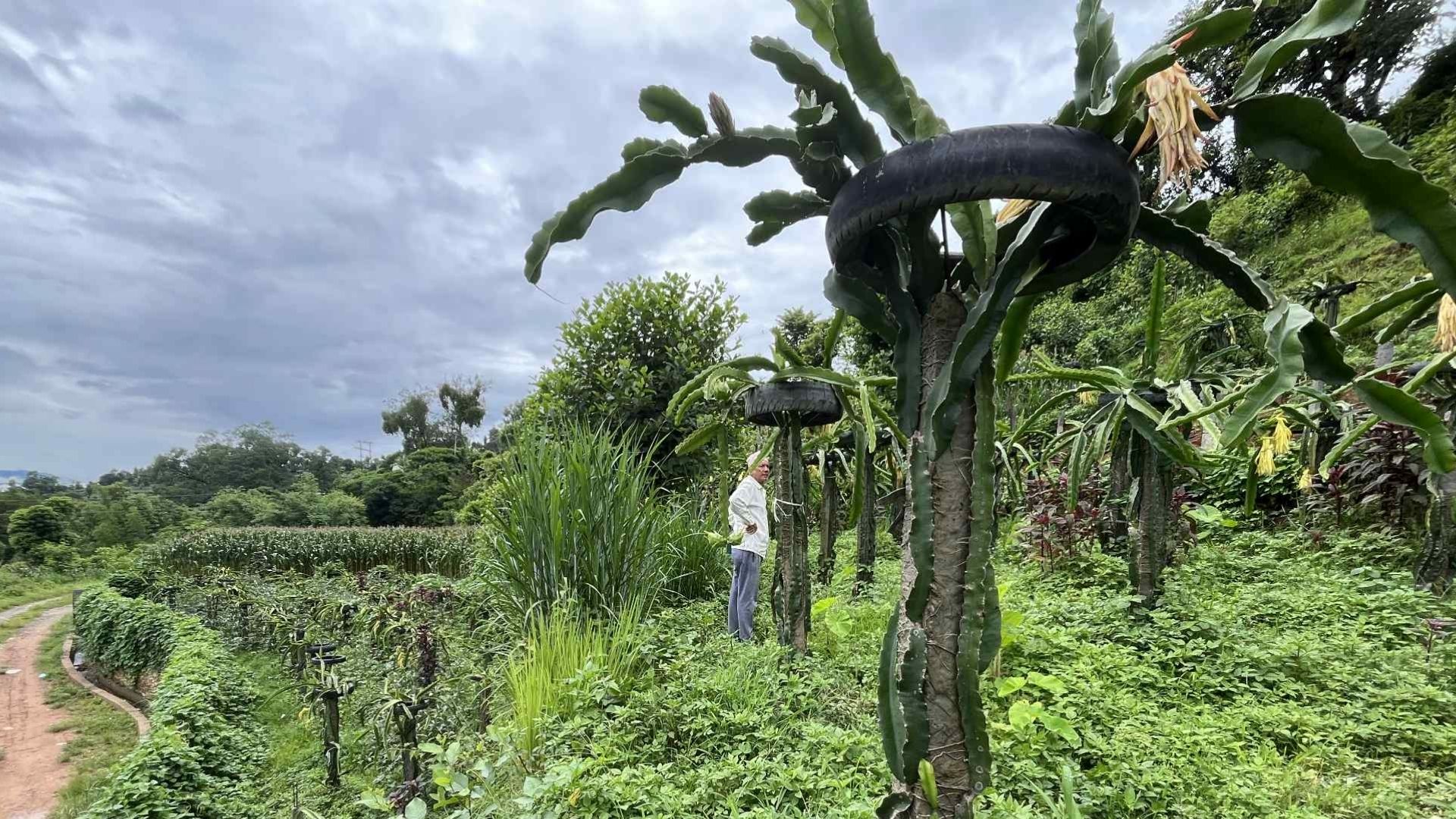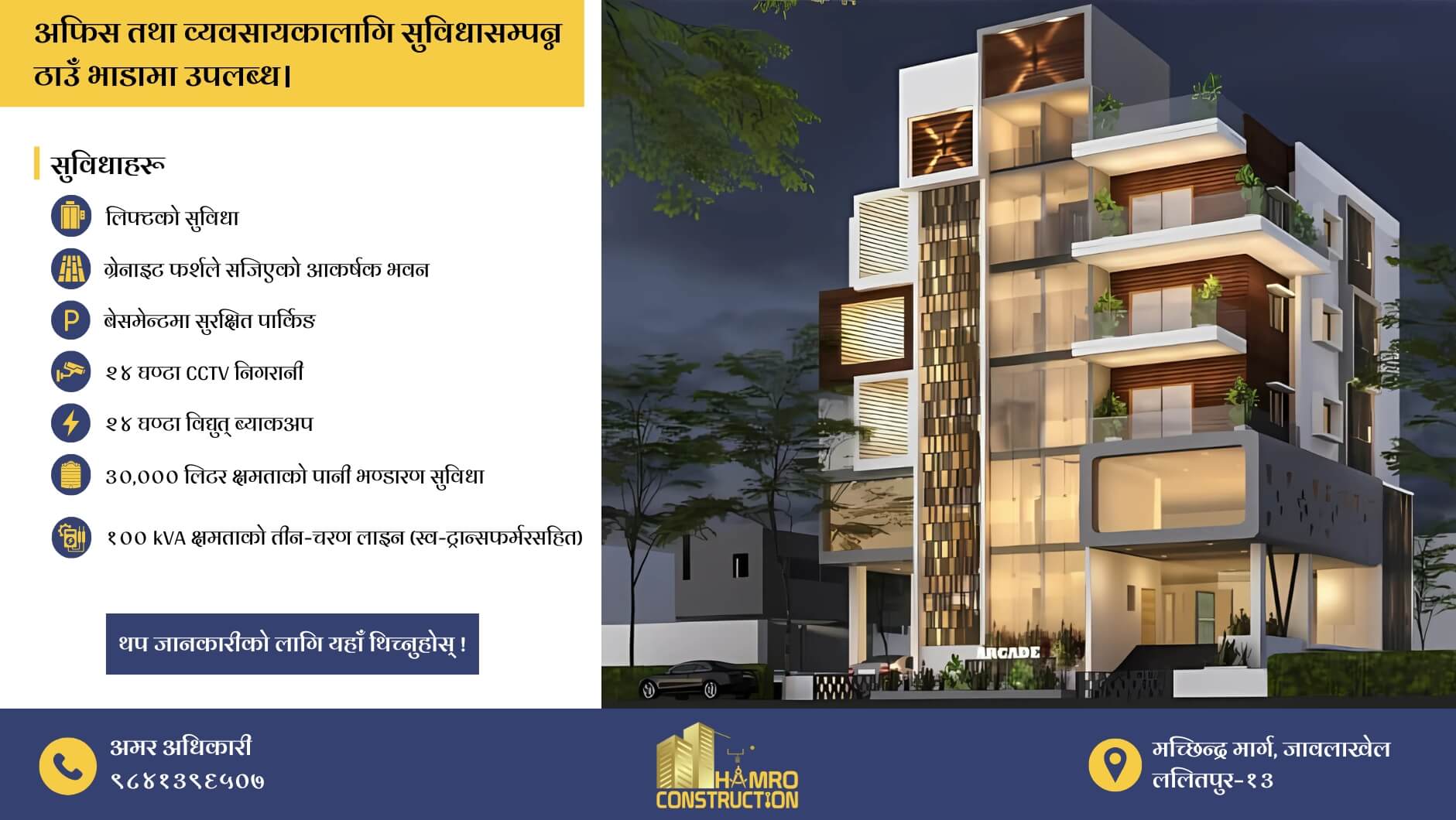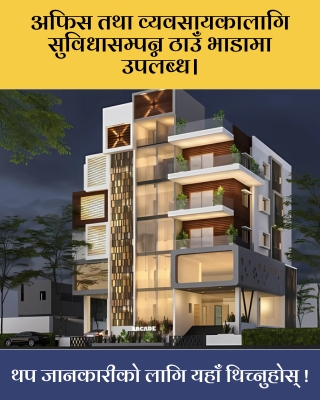Nimesh Jung Mewahang Rai spent over two decades in photography, including the last 17 years in photojournalism.
For someone who has dedicated significant years to a particular profession, changing careers is no easy task. Learning something new and stepping out of a well-established comfort zone is certainly challenging. However, Nimesh embraced this challenge a few months ago when he decided to step beyond his expertise and launched ‘Mukhu Kitchen’.
Located in Kalopul, Mukhu Kitchen was founded four months ago through the collaboration of Nimesh and Punu Sobha Maharjan. Despite being a new establishment, Mukhu Kitchen has been already attracting customers due to its uniqueness, Nimesh shares.
What makes Mukhu different?
The idea behind opening Mukhu Kitchen during the COVID-19 pandemic and global economic slowdown was shaped by Nimesh’s personal experiences.
In major cities of Nepal, international cuisines are mostly available only in high-end restaurants. Korean, Chinese, and Japanese dishes, for example, are often out of reach for the general public. Fine dining menus are usually limited to big hotels, whereas smaller eateries mainly serve limited items such as tea, snacks, momos, and chowmein.
“Where there are people, there are needs—food, health, and education being the primary ones,” says Nimesh. “However, the situation of fine dining in Nepal is such that it has become largely inaccessible to the general public.”
This led him to the question: “Is it possible to bring big hotel-style menus to smaller places at lower prices?” The idea of Mukhu Kitchen was born from this very thought.
At Mukhu Kitchen, customers can find dishes that are not typically available in small eateries. The restaurant primarily focuses on Chinese, Korean, and Indian cuisine, along with select Nepali and Newari dishes.
“We modify foreign dishes to suit Nepali tastes,” Nimesh explains. “For lower and middle-class people, experiencing international cuisine is expensive. Many feel intimidated by the high prices of big hotels. Mukhu Kitchen is an effort to connect them with new flavors at an affordable price.”
Due to this approach, within just a few months of opening, Mukhu Kitchen has gained a strong customer base and established itself as a successful venture.
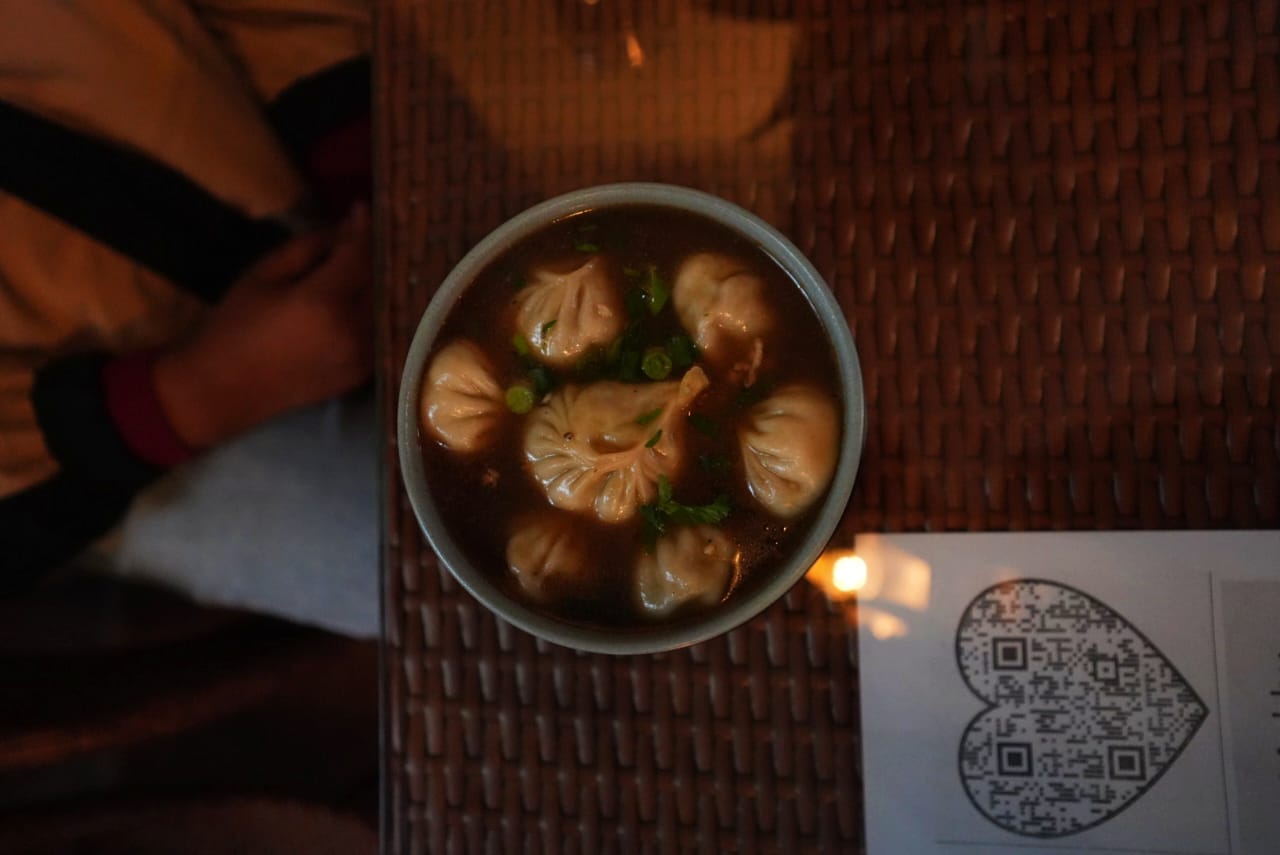
Investment of 1.5 million | Daily business of rupees 5,000
Mukhu Kitchen was launched with an investment of 1.5 million NPR, out of which 1.2 million was spent on management. The remaining 300,000 NPR was set aside as working capital for business operations.
Although the restaurant started its operations during Tihar, the initial month was spent adjusting to the workflow. By Mangsir, Mukhu Kitchen was fully operational, says Nimesh.
After evaluating the first month’s menu, they introduced a revised menu. Now, they are preparing for another review of the menu to further improve their offerings.
“Running a restaurant isn’t just about selling and serving food; it’s about constantly adapting to customers’ tastes. That’s why we frequently revise our menu to perfect the flavors,” Nimesh explains the reason behind menu revisions.
Currently, Mukhu Kitchen generates around 5,000 NPR in daily revenue.
However, Nimesh mentions that they have kept profit margins low on food prices. Since their goal is to introduce common people to new flavors, they have ensured that Mukhu Kitchen’s dishes remain affordable and accessible.
“Our service reaches more people if we keep our margins low,” says Nimesh. “As soon as we start charging high prices keeping more margin, we will be limited and won’t be able to serve everyone. So, we may increase the quantity but will always keep the prices low.”
Currently, the profit margin on food items is only around 20-30% at Mukhu Kitchen.
Can a Restaurant Sustain with Such Low Margins?
Nimesh believes that making business more accessible at affordable prices is a smarter approach than charging high prices.
“For me, earning 20 rupees is better than selling nothing at all,” he says.
A new business for Nimesh. How is he handling?
While Nimesh is new to the restaurant and food industry, his business partner, Punu Sobha Maharjan, brings a wealth of experience to the table.
Because of this, their responsibilities are divided—Nimesh manages tasks outside the kitchen, including social media marketing, online orders, and food delivery, while Punu Sobha focuses on the kitchen.

Punu Sobha has prior experience in the hotel industry, and her husband is also a professional chef. This allows efficient task distribution between the two partners.
“We’re both the staff and the operators—it’s just the two of us,” says Nimesh. “She runs the kitchen, while I handle deliveries, dishwashing, and overall cleanliness.”
Prioritizing taste and quality
Nimesh has a habit of analyzing the weaknesses of any industry he enters, and he has applied the same approach in the restaurant business as well.
“In the food industry, the most important factors are taste and quality,” he states. “That’s why we don’t compromise on these aspects.” Nimesh says that quality must be maintained right from the raw materials.
To ensure quality, they source raw ingredients from wholesale markets across Kathmandu Valley.
“Since taste is the key factor, we focus on high-quality raw materials,” says Nimesh. “Some places sell counterfeit products at cheaper prices, but they affect the taste. That’s why we always search for authentic ingredients.”
By ensuring authentic flavors and high-quality ingredients, Mukhu Kitchen is committed to delivering genuine culinary experiences.
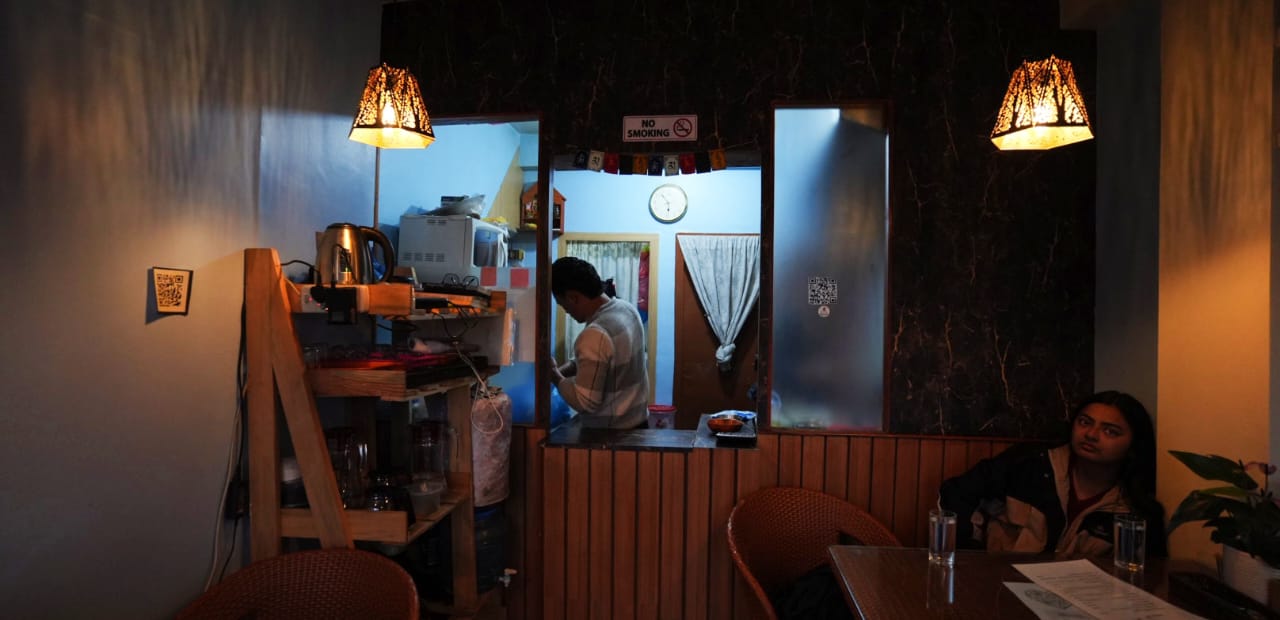
Home delivery service
Today, online food ordering and home delivery have become essential for any restaurant businesses. Many restaurants now provide food delivery services through different platforms.
Mukhu Kitchen also offers this service, says Nimesh.
Since the launch itself, Mukhu Kitchen has been delivering food in areas like Kalopul, Ratopul, and nearby locations.
“We take orders through social media and phone calls,” says Nimesh. “Many customers prefer ordering from home, so we are also focused on bettering the home delivery services.”
By nature, Nimesh is always eager to explore new fields and gain fresh experiences. Whatever he pursues, he dedicates himself completely to it. He recalls how, after spending many years in photography, he eventually transitioned into journalism. Throughout his years in journalism, he remained fully committed to the profession.
“Whatever field I enter, I give my 100% effort. Now that I am engaged in a new business, I cannot say that I will continue journalism alongside it,” he says.
Since launching Mukhu Kitchen, Nimesh has been entirely devoted to it. He is satisfied with the work his new business is generating and is equally enthusiastic about gaining new experiences on this journey. “We are not only focused on flavors but also work on making the business unique. Delivering the food personally is part of that approach,” he explains.
According to Nimesh, the most important aspect of the restaurant business is customer service and satisfaction.
“When someone spends money for a service, they deserve quality service in return. Maintaining high standards is part of the discipline required in this industry,” he says.
Yubaraj Bhattarai has a strong interest in both journalism and literature. He has gained experience working with various media outlets, including Annapurna Post, Nepal Live and Clickmandu. Yubaraj graduated with a degree in Journalism from RR Campus, Tribhuvan University.


